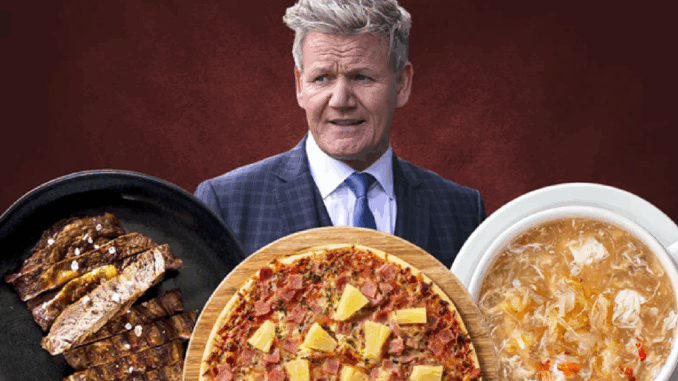
Given their careers in the spotlight — and serious love for food — celebrity chefs often carry strong opinions about what they eat, but Gordon Ramsay takes his opinions to another level. Known for his sharp culinary critiques and colorful language, Ramsay has made a career out of both cooking and calling out questionable dining choices. Fans tune in to his reality shows not only to watch him showcase what a perfect beef Wellington is, but also to see him tear apart anything that doesn’t meet his high standards.
That includes a surprising list of foods that he flat-out refuses to eat, which vary as much as his favorite foods. Some of his reasons are rooted in freshness and technique, while others stem from ethical concerns or just plain taste preferences. Whether he’s turning down airplane meals or railing against pineapple pizza, Ramsay never shies away from sharing how he feels. His culinary lines in the sand spark debates among food lovers everywhere, making us question what we eat, why we eat it, and whether we’d dare serve it to him. Here’s a look at seven of the dishes you won’t catch Ramsay eating.
1. Airplane meals
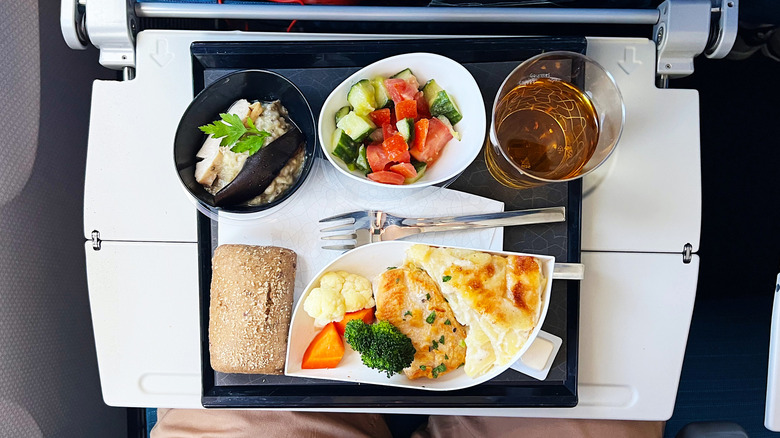
Ramsay has made it clear that eating on planes is not part of his travel routine, and his reasoning goes back to firsthand experience. Early in his career, he worked with airline catering and saw exactly how meals are prepared, stored, and transported before ever reaching a passenger. By the time a dish is cooked, chilled, packaged, and reheated at altitude, the result rarely meets the standard he expects from a meal.
Instead, he prefers to plan around the flight. Ramsay often eats in the terminal before boarding, and when possible, he’ll stop by his own airport restaurant — aptly named Plane Food , just one of his many restaurants — for something freshly made. If that’s not an option, he opts for simple snacks like cured meats, fruit, and cheese that travel well and don’t rely on reheating. His approach underlines a larger truth: dining in the air is rarely about culinary pleasure, so he avoids it altogether. For those who don’t have the option and have to eat while airborne, there are some foods you definitely should avoid and others that tend to be safer bets.
2. Hawaiian pizza
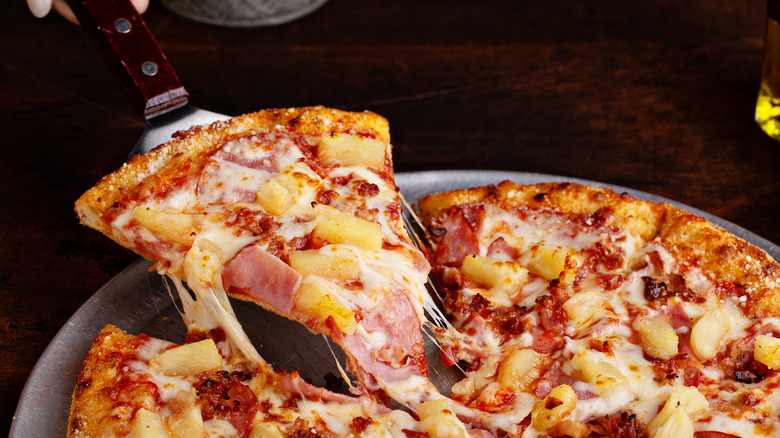
Few foods stir up as much debate as pineapple on pizza, and one of the most famous chefs in the world has become a visible opponent. During a Facebook Live charity event with the fundraising group Omaze, Ramsay agreed to try a slice topped with the controversial fruit. His reaction was immediate and unenthusiastic, leaving little doubt about where he stands on the topping.
For Ramsay, the issue goes beyond personal preference. He argues that pineapple’s flavor profile — sweet, juicy, and tangy — fits better with creamy or dessert-like pairings, such as vanilla and ice cream, rather than competing with the salty, umami-driven flavors of pizza. That clash disrupts the balance that makes a slice enjoyable. Still, plenty of fans continue to enjoy Hawaiian pizza without hesitation. Ramsay’s emphatic rejection, however, shows that the debate never dies, allowing for pineapple pizza to continue as one of food culture’s most polarizing — and enduring — arguments.
3. Fermented shark
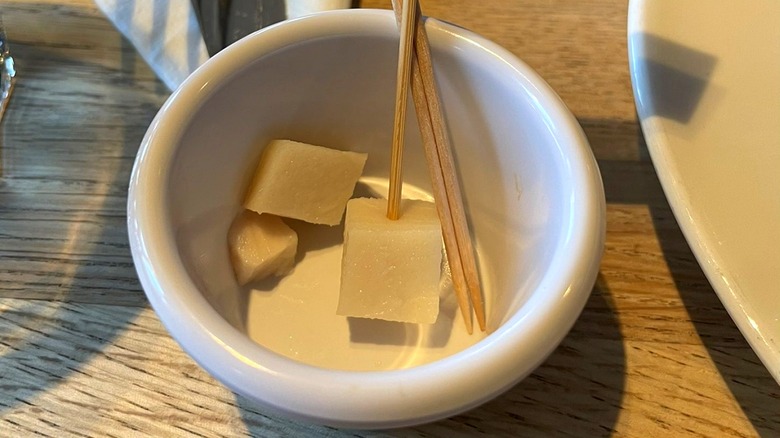
During an episode of one of his television shows filmed in Iceland, Ramsay was offered hákarl, the country’s traditional fermented shark. The dish is notorious for its sharp ammonia smell and strong taste, making it a challenge even for adventurous eaters. Ramsay’s reaction was immediate as he clearly struggled with the experience, tasting only a small piece before deciding he couldn’t continue. His body language and refusal to go further said everything about how overwhelming he found it.
The moment showed the clash between cultural tradition and personal palate. For Icelanders, hákarl has deep roots in food preservation and survival, while for Ramsay, the fermented fish was simply too pungent and intense to stomach. Even though he’s built a reputation on trying unfamiliar foods, this was one of the rare occasions where he drew the line. It highlighted how some flavors, no matter how meaningful in their place of origin, don’t translate universally.
4. Soup du jour
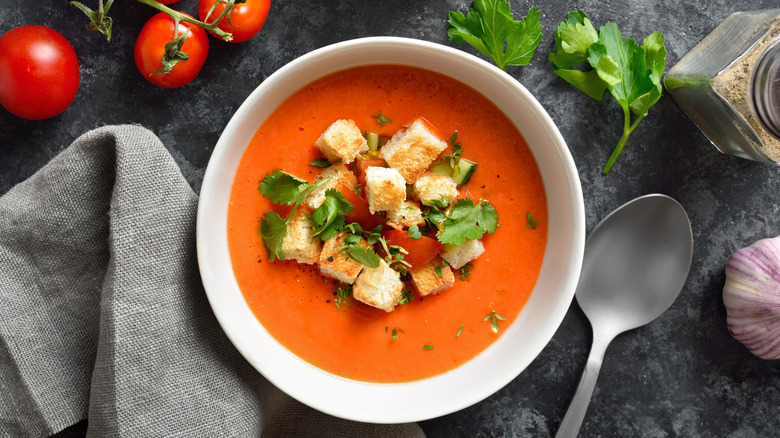
Ramsay has a straightforward rule of thumb when dining out: be careful with the “soup of the day.” In his experience, that label can sometimes be more about convenience than freshness. There are practical reasons for a soup of the day, but pots of the stuff made days earlier can be stretched with added stock or vegetables, leaving diners unsure of exactly how long it has been simmering. To him, that makes it a risky choice if you’re hoping for a dish that feels vibrant and well-crafted.
The concern isn’t about soup itself. After all, Ramsay has always valued a dish that’s prepared with skill and purpose. His warning is really about transparency. When a restaurant relies too heavily on vague menu language, it can hide the fact that the offering isn’t fresh or carefully made. Diners, he suggests, should be mindful of what “soup of the day” might really mean. Instead of settling for something uncertain, look for dishes the kitchen is clearly taking pride in.
5. Well-done steak
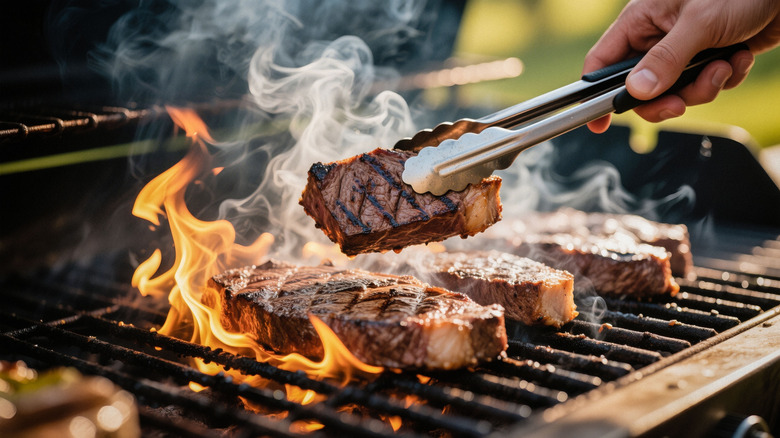
Ramsay is firm in his belief that steak should never be cooked all the way to well-done. He shared with Town & Country that pushing beef that far strips away the very qualities that make it enjoyable — the flavor becomes muted, the juices are gone, and the texture turns tough instead of tender. To him, that level of cooking wastes a good cut of meat and undermines the effort of preparing it well.
His guidance is to follow the chef’s recommendation or, if you’re choosing for yourself, stop at medium. That point allows steak to retain its natural richness and balance of tenderness and sear. Ramsay has also spoken about the importance of techniques like resting meat and cooking it over high heat, which help protect the integrity of a cut. For him, it isn’t about dictating taste but about honoring the ingredient. Ordering well-done, in his view, means giving up everything that makes steak worth savoring.
6. Deep-fried turkey
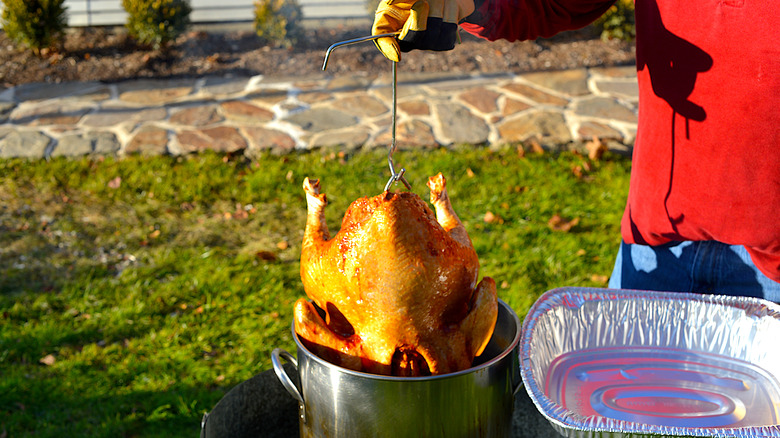
For Ramsay, the Thanksgiving tradition of deep-frying a whole turkey isn’t something he embraces. The method can often leave the meat greasy and risks drying out the bird rather than keeping it moist. He shared on “The Late Show with Stephen Colbert” some years ago that he much prefers roasting, a cooking process that allows the flavors to develop gradually while keeping the texture balanced. To him, the best way to honor a holiday centerpiece like turkey is to season, baste, and roast it carefully rather than submerge it in oil.
There’s also the practical side. Deep-fried turkeys have become infamous for accidents in home kitchens and backyards, with splattering oil and uncontrolled flames making headlines every holiday season. Ramsay’s critiques highlight the idea that great food shouldn’t come with that kind of hazard. His advice is simple: keep the drama on the plate, not in the fryer. For him, the spectacle of frying may grab attention, but a carefully roasted bird delivers the true payoff of flavorful meat and a safer celebration.
7. Shark fin soup
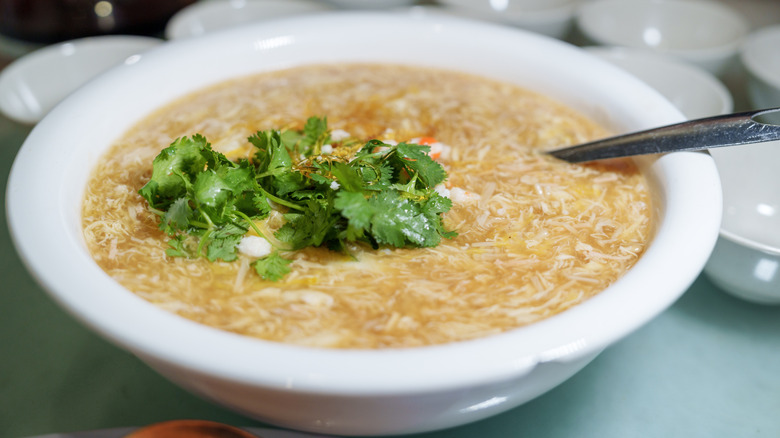
Ramsay’s view on shark fin soup is rooted in what he discovered while making his documentary “Sharkbait” and later through his work with the Shark Trust. Before filming, he admitted he hadn’t realized just how hidden and widespread the shark fin trade was. Seeing it firsthand changed his perspective: he learned how sharks are often caught, stripped of their fins, and discarded, a process that’s both cruel and wasteful. That experience cemented his opposition to the dish, which he now associates with unsustainable and destructive practices.
Since 2010, Ramsay has been a patron of the Shark Trust and has supported their Stop Shark Finning campaign. He has used his platform to highlight how the demand for shark fin soup threatens shark populations and risks pushing some species toward extinction. For Ramsay, refusing the dish is more than a matter of taste; it’s a stance against a practice he believes has no place in modern dining, and it may cause you to think twice before ordering shark at a restaurant.
